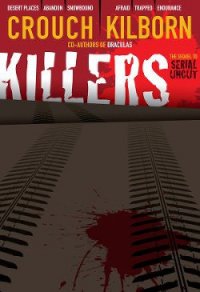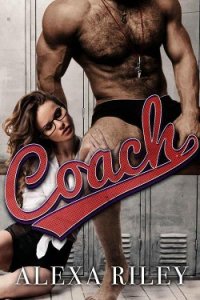Odd and the Frost Giants - Gaiman Neil (читаем книги онлайн бесплатно без регистрации TXT) 📗
“One day,” said Freya softly, “I will regret this.” But she smiled to herself, and she reached a hand out and touched the black tip of the fox’s muzzle, then ran her finger up between its ears and along its spine and all the way up to the very tip of its tail.
A shimmer—then a man stood in front of them, beardless, flame-haired, as pale of skin as Freya herself. Eyes like green chips of ice. Odd wondered if Loki had a fox’s eyes still, or if the fox had always had Loki’s eyes.
Thor threw Loki some clothes. “Cover yourself,” he said bluntly.
Now Freya turned her attention to Odd. Her gentle smile filled his world. “Your turn,” she said.
“I look like this anyway,” said Odd.
“I know,” said Freya. She knelt down beside him, reached out a hand towards his injured leg. “May I?”
“Um. If you want to.”
She picked him up as if he was light as a leaf, and put him down on the great feasting table of the Gods. She reached down to his right foot and deftly unhooked it at the knee. She ran a nail across the shin and the flesh parted. Freya looked at the bone, and her face fell. “It was crushed,” she said, “so much that not even I can repair it.’ And then she said, “But I can help.”
She pushed her hand into the inside of Odd’s leg, kneading the smashed bones, pulling together the fragments from inside the leg, smoothing them together. Then she opened the flesh of the foot and repeated the same operation, putting the pieces of foot bone and toe bone back where they were meant to be. And then she encased the skeletal leg and foot in flesh once more, sealed it up, and the Goddess Freya reattached Odd’s leg to Odd, and it was as if it had always been there.
“Sorry,” she said. “I did the best I could do. It’s better, but it’s not right, yet.” She seemed lost in thought, then she said brightly, “Why don’t I replace it entirely? What about a cat’s rear leg? Or a chicken’s?”
Odd smiled, and shook his head. “My leg is fine,” he said.
Odd stood up cautiously, put his weight on his right leg, trying to pretend he had not just seen his leg unhooked at the knee. It did not hurt. Not really. Not like it used to.
“Give it time,” said Freya.
A huge hand came down and clapped Odd on the shoulder, sending him flying.
“Now, laddie,” boomed Thor. “Tell us just how you defeated the might of the Frost Giants.” He seemed much more cheerful than when he had been a bear.
“There was only one of them,” said Odd.
“When I tell the story,” said Thor, “there will be at least a dozen.”
“I want my shoes back,” said Loki.
There was a feast that night in the great mead hall of the Gods. Odin sat at the end of the table, in the magnificent, carved chair, saying almost as little as he had when he was an eagle. Thor, on his left side, boomed enthusiastically. Loki, who had to sit down at the far end of the table, was pleasant enough to everyone until he got drunk, and then, like a candle suddenly blowing out, he became unpleasant, and he said mean, foolish, unrepeatable things, and he leered at the Goddesses, and soon enough Thor and a large man with one hand, who Odd thought might have been called Tyr, were carrying Loki from the hall.
“He doesn’t learn,” said Odd.
He thought he had said it to himself, in his head, but Freya, who was sitting beside him, said, “No. He doesn’t learn. None of them do. And they don’t change, either. They can’t. It’s all part of being a God.”
Odd nodded. He thought he understood, a little.
Then Freya said, “Have you eaten enough? Have you drunk your fill?”
“Yes, thank you,” said Odd.
Old Odin left his chair, and walked towards them. He wiped the goose grease from his mouth with his sleeve, smearing even more grease all over his grey beard. He said, quietly, into Odd’s ear, “Do you know what spring it was you drank from, boy? Where the water came from? Do you know what it cost me to drink there, many years ago? You didn’t think you defeated the Frost Giants alone, did you?”
Odd said only, “Thank you.”
“No,” said Odin. “Thank you.” The All-father was leaning on a staff carved with faces—dogs and horses and men and birds, skulls and reindeer and mice and women—all of them wrapped around Odin’s stick. You could look at it for hours and still not see every detail on that stick. Odin pushed the staff towards Odd and said, “This is for you.”
Odd said, “But…”
The old God looked at him gravely through his one good eye. “It is never wise to refuse the gifts of the Gods, boy.”
Odd said, “Well, thank you.” And he took the staff. It was comfortable. It felt as though he could walk a long way, as long as he was leaning on that staff.
Odin dipped his hand into a pitcher, brought it out holding a small globe of water no larger than a man’s eyeball. He placed the water ball in front of a candle flame. “Look into this,” he said.
Odd looked into the ball of water, and his world became a rainbow, and then it went dark.
When he opened his eyes, he was home.
CHAPTER 8
AFTERWARDS

ODD LEANED HIS WEIGHT on the staff and looked down at the village. Then he began to walk the path that would take him home. He was still limping, a little. His right foot would never be as strong as his left. But it did not hurt, and he was grateful to Freya for that.
As he headed down the path to the village, he heard a rushing noise. It was the sound of snow melting, of new water trying to find its way to lower ground. Sometimes he heard a clump as snow fell from a tree onto the ground beneath, sometimes the deep thrum thrum thrum, followed by a harsh cracking sound, as the ice that had covered the edge of the bay through this eternal winter began to cleave and to break up.
In a few days, Odd thought, this will all be mud. In a few weeks it will be a riot of greenery.
Odd reached the village. For a moment he wondered if he had come to the wrong place, for nothing looked as he remembered it looking when he had left, less than a week before. He remembered how the animals had grown, when they reached Asgard, and then, how they seemed, later, to have shrunk.
He wondered if it was the air of Asgard that did it, or if it had happened when he drank the water of the pool.
He reached Fat Elfred’s door and he rapped upon it sharply with his staff.
“Who is it?” called a voice.
“It’s me. Odd,” he said.
There was a noise inside the hut, an urgent whispering, then people talking in low voices. Odd could hear the loudest of the voices as it grumbled about good-for-nothings who stole a side of salmon, and how it was high time for someone to be taught a lesson he would never forget. He heard the sound of a door being unbarred.
The door opened and Fat Elfred looked out. He stared at Odd, confused.
“I’m sorry,” he said, in a most un-sorry tone of voice. “I thought my runaway stepson was here.”
Odd looked down at the man. Then he smiled and he said, “It is him. I mean, it’s me. I’m him. I’m Odd.”
Fat Elfred said nothing. The heads of his various sons and daughters appeared around him. They looked up at Odd nervously.
“Is my mother here?” asked Odd.
Fat Elfred coughed. “You grew,” he said. “If that is you.”
Odd just smiled—a smile so irritating that it had to be him.
The smallest of Fat Elfred’s children said, “They got into fights after you went away. She said we had to go and look for you and that it was Dad’s fault you’d run off, and he said it wasn’t and he wouldn’t and good riddance to bad rubbish and she said right then, and she went back to your father’s old house on the other side of town.”




